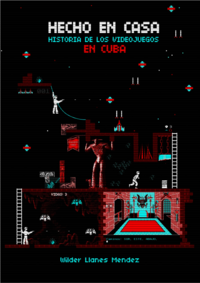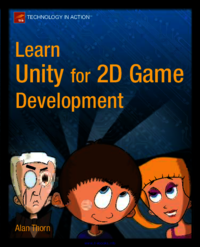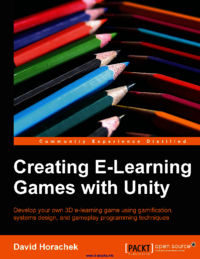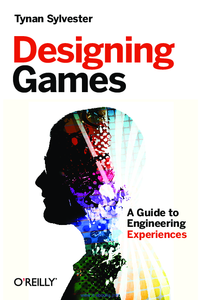Categoría "desarrollo de videojuegos"
Se han encontrado 8 Coincidencias
tecnicas avanzadas
203 Visitas | 214 Descargas | 2015-03-18 17:45:22 | adbenitez
trata sobre el desarrollo de videojuegos, en especial se trata en esta edicion la parte de tecnicas avanzadas para el desarrollo de los videojuegos..

desarrollo de componentes
156 Visitas | 190 Descargas | 2015-03-18 17:46:36 | adbenitez
trata sobre el desarrollo de videojuegos, en especial se trata en esta edicion la parte de desarrollo de componentes de los videojuegos

Hecho en Casa
Historia de los videojuegos en Cuba
212 Visitas | 233 Descargas | 2016-02-19 17:50:33 | lisbethm
Historia de los videojuegos en Cuba, de la informatización en Cuba y del grupo Merchise. Historia de los videojuegos en Cuba, de la informatización en Cuba y del grupo Merchise. Historia de los videojuegos en Cuba, de la informatización en Cuba y del grupo Merchise. Historia de los videojuegos en Cuba, de la informatización en Cuba y del grupo Merchise.

Merchise Arando un sueño en la superficie del sol
Historia del grupo Merchise
167 Visitas | 136 Descargas | 2016-02-19 17:52:55 | lisbethm
Historia de los videojuegos en Cuba, de la informatización en Cuba y del grupo Merchise. Historia de los videojuegos en Cuba, de la informatización en Cuba y del grupo Merchise. Historia de los videojuegos en Cuba, de la informatización en Cuba y del grupo Merchise. Historia de los videojuegos en Cuba, de la informatización en Cuba y del grupo Merchise.

Learn Unity for 2D Game Development
Desarrollo de juegos 2D en Unity
143 Visitas | 389 Descargas | 2018-11-23 20:11:31 | fcastellanos
If you log on to any online or mobile marketplace for games and browse the titles offered today, it’s likely that the majority of games you see will be 2D and not 3D. If you think back over the relatively short history of video games, or if you listen to industry veterans talking about their inspirations and favorite games, it’s likely that the titles most mentioned are in the 2D style. Frequently listed titles in these video game reminiscences include: Pacman, Sonic the Hedgehog, Super Mario Brothers, Tetris, Lemmings, Arkanoid, Bejewelled, Angry Birds, Plants vs Zombies, Minesweeper, Civilization, Donkey Kong, and Sim City. Despite the manifold differences between all these landmark games both new and old, they all share the common ingredient of 2D-ness; of having their graphics presented in a very specific way that doesn’t rely on three-dimensional space. In short, the 2D style represents some of the most well-known titles in video games history, and it is also a style that is alive and well today. 2D games are not simply stuck in history. They are not a thing of the past; a phenomena that has been and is no longer relevant to the demands of contemporary gamers. Rather, these games represent a significant and lucrative segment of the video game market. Often has been the occasion when this or that learned person has predicted the demise of 2D games, and yet despite all such predictions 2D games have not gone away. This resilience and strength is due primarily to their general popularity, charm, and stylistic simplicity. 2D imparts a classical and timeless feel to games that is technically difficult to replicate by alternative means. For this reason, gamers keep coming back to the 2D style and find within it new ways of enjoying games and experiencing richness. 2D games today play an especially prominent role in two large market areas, and for different reasons. These markets are the casual game market and the so-called “indie games market.” In the casual games market, including games such as Mystery Case Files and Bejewelled, the 2D style is deployed to add an accessible “pick up and play” feel that does not require the user to learn any complex control systems or to concern themselves with moving a camera in 3D space. The Indie Games market, including games such as Retro City Rampage and Super Meat Boy, have used the 2D style to create a retro or old school feel that is popular to a general audience.

Building a Game with Unity and Blender
Desarrollo de videojuegos en Unity y Blender
147 Visitas | 331 Descargas | 2018-11-23 20:13:34 | fcastellanos
In the wake of the indie game development scene, game development tools are no longer luxury items costing up to millions of dollars but are now affordable by smaller teams or even individual developers. Among these cutting-edge applications, Blender and Unity stand out from the crowd as a powerful combination that allows small to no budget indie developers or hobbyists alike to develop games that they have always dreamt of creating.

Creating E-Learning Games with Unity
E-learning can be described as the use of computers and digital technology to facilitate teaching and learning. One popular method of accomplishing this, and which is also the approach we will take in this book, is through gamification of learning, that is, the application of cognitive psychology and game-based rules to learning systems.
98 Visitas | 478 Descargas | 2018-11-23 20:15:24 | fcastellanos
E-learning can be described as the use of computers and digital technology to facilitate teaching and learning. One popular method of accomplishing this, and which is also the approach we will take in this book, is through gamification of learning, that is, the application of cognitive psychology and game-based rules to learning systems.

Designing Games
How do you design a video game that people love to play? In this practical guide, game designer Tynan Sylvester shows you how to create emotionally charged experiences through the right combination of game mechanics, fictional wrapping, and story. You’ll learn design principles and practices used by top studios, backed by examples from today’s most popular games. This book also takes you through the day-to-day process necessary to keep your project on track: when to build and when to test, how to work with a team, and how to avoid creative dead ends.
138 Visitas | 163 Descargas | 2018-11-23 20:17:16 | fcastellanos
How do you design a video game that people love to play? In this practical guide, game designer Tynan Sylvester shows you how to create emotionally charged experiences through the right combination of game mechanics, fictional wrapping, and story. You’ll learn design principles and practices used by top studios, backed by examples from today’s most popular games. This book also takes you through the day-to-day process necessary to keep your project on track: when to build and when to test, how to work with a team, and how to avoid creative dead ends.
Contribuir
Usted puede contribuir con Libros UCLV, es importante para nosotros su aporte..
Contribuir